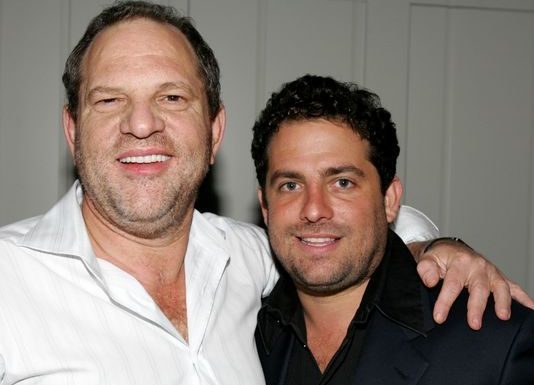

It’s a bad time for Hollywood glamour. The continuing revelations that began with reports of Harvey Weinstein’s predatory sexual behavior have already tarnished Awards Season, as winter is known in sunny Los Angeles. Misery and evil seem to lurk behind the happy red-carpet smiles.
After accompanying so many articles on Weinstein’s abuses, the photos of Gwyneth Paltrow posing with her Oscar for Shakespeare in Love in her demure pink dress will never look the same. They now have an ominous undertone. Is there a hint of a grimace in her thanks to Weinstein and Miramax? Is he groping her backside with his unseen hand? At what cost were such movies produced?
More: Bye bye, Charlie Rose
More: Zero tolerance for predators requires zero partisanship
Glamour is always an illusion. It hides flaws, distractions, and effort — the plastic surgery, the Spanx under the red carpet gown, the bruises on the action star’s stunt double, the countless audition rejections. (The old Scots’ word “glamour” originally denoted a literal magic spell that made people see things that weren’t there.)
Most of what’s hidden is merely ordinary. When young fan Jane Wilkie toured RKO Studios in 1940, she was disillusioned to see Ginger Rogers chewing gum. “Wrigley struck down an idol,” she recalled decades later. “It hadn’t occurred to me that movie stars chewed gum, wheezed with head colds, or used the john.” Even stars are only human.
Glamour’s illusion can also hide darker realities, concealing not merely the tedious and mundane but the horrific. Glamour may do more than disguise abuse. It can feed it.
The glamour of stardom draws aspiring actors to Hollywood, but it isn’t the only glamour the entertainment business offers. Unmentioned amid the recent revelations is what makes the role of movie, TV, or music impresario enticing to many men: the promise of easy sex with beautiful young women. “I always felt that I was pursuing shared feelings,” Charlie Rose said in response to allegations of unwanted sexual advances and a propensity to parade nude in front of young female assistants. He may indeed have believed they didn’t mind. After all, as a famous reality-show host boasted, “When you’re a star they let you do it. You can do anything.”
Or take the recent Los Angeles Times article detailing sexual-misconduct allegations against hip-hop mogul Russell Simmons and Hollywood player Brett Ratner. Amid charges of coerced sex, the piece portrays their “playboy lifestyle” of all-night clubbing, “party pad” homes, and effortlessly available women. In a 2007 book, Simmons wrote that as a young film student Ratner “was willing to do anything to be of use. After he hung around a bit and figured out that I liked models, then he made it his business to take me to every model’s apartment he could find.” The Times cites a story by magazine writer Touré, describing a 1994 interview with Simmons at a cafe below his apartment
More: After Weinstein, consider the Pence rule to protect your heart and marriage
POLICING THE USA: A look at race, justice, media
When Ratner showed up a little while later, Simmons disappeared for half an hour without explanation. Touré wrote that he later learned that Simmons “had gone up to his place and had sex with a sumptuous model whom Ratner had just finished with.”
For a certain kind of man, the Times account isn’t an exposé. It’s glamorous.
These are artistic milieus, where the bohemian ideal of free love reigns, providing a friendly environment for men who happily ignore its implicit inegalitarianism. “I came of age in the 60’s and 70’s” was Weinstein’s original excuse. The rules were different then. Peace, love and understanding. If it feels good, do it. The tales of how New Republic literary editor Leon Wieseltier tested his female colleagues to see where they would draw the line against his sexual encroachments have a sixties ring about them. Only a prude would object. Never mind that she’s just not into you.
We’re now seeing what this version of glamour conceals. This sex isn’t free or effortless. It isn’t countercultural, modern or liberal. There’s nothing enlightened or artistic about it. It’s gross and more than a little pathetic. And it’s as retrograde as Zeus’s many rapes, exacted from unwilling subjects who come to despise the predator, his accomplices, and, all too often, themselves
Virginia Postrel is the author of The Power of Glamour: Longing and the Art of Visual Persuasion and a columnist for Bloomberg View and Reason magazine.

